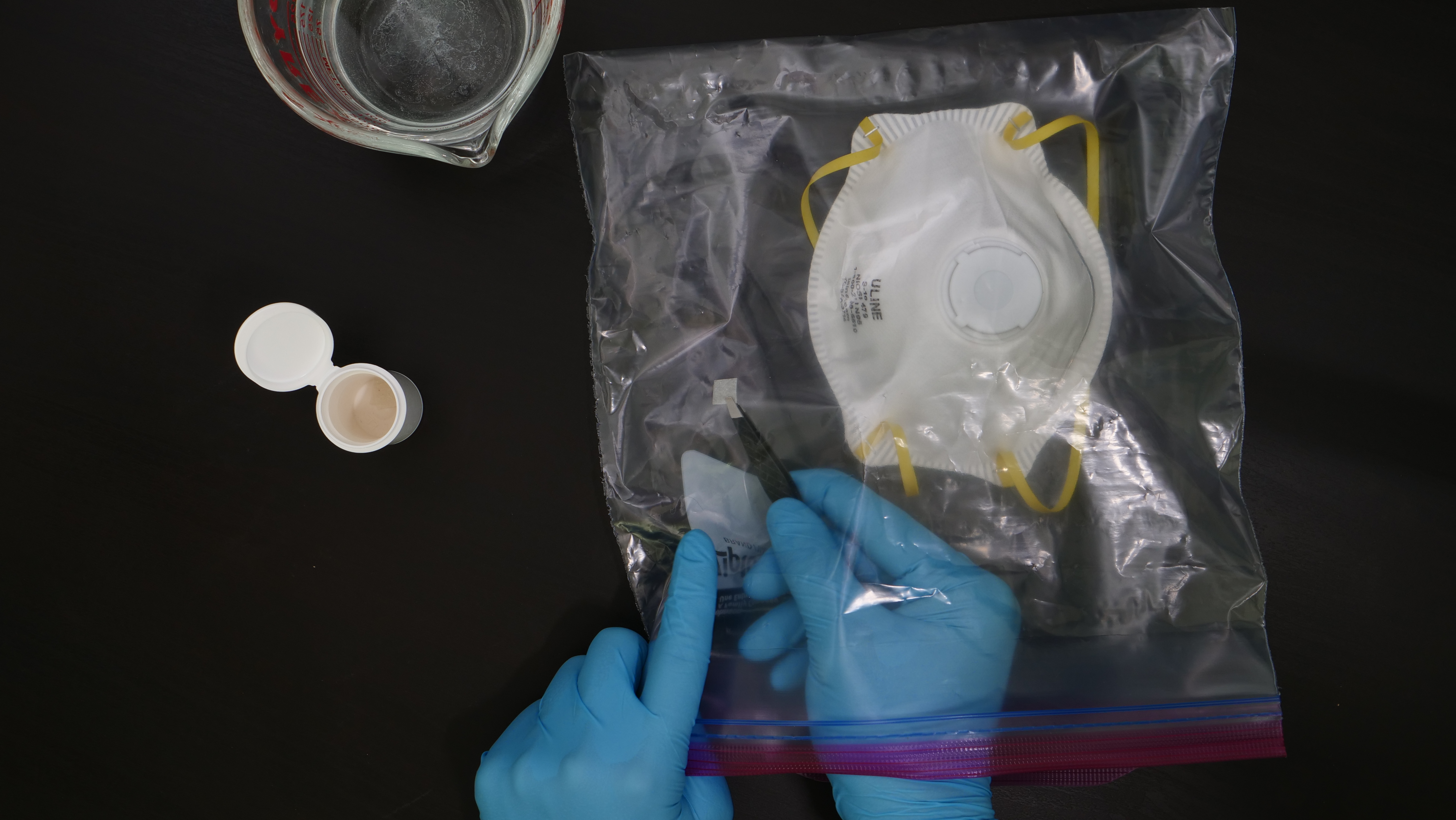School of Forestry and Wildlife Sciences assistant professor contributes to solution that decontaminates N95 masks
Article body
School of Forestry and Wildlife Sciences Assistant Professor Soleded Peresin’s Nanocellulose Laboratory assisted Aptar CSP Technologies' Jason Pratt to test the concentration of chlorine dioxide released during the decontamination process of N95 filtering respirators, or N95 masks.
Aptar CSP Technologies, based in Auburn and part of the AptarGroup, has requested U.S. FDA Emergency Use Authorization for a solution that allows easy decontamination of N95 filtering respirators. The N95 masks are desperately needed by healthcare personnel due to the shortage of disposable masks during the COVID-19 pandemic. Aptar is working toward capacity of 10 million treatments per week which can be performed at the medical site without any special equipment.
Click here to read the press release.
Researchers demonstrate the decontamination procedure for the N95 masks. According to Aptar’s statement, “In this simple disinfecting process, the N95 mask and a small strip of Aptar’s ActivShieldTM are placed inside any commonly available one-gallon plastic bag. The strip releases a controlled amount of chlorine dioxide inside the sealed bag to decontaminate the N95 mask. The process takes only three hours until the mask is ready to wear again. It can be performed on-site at the local hospital where the mask is being used.”
Submitted by: Jamie Anderson





